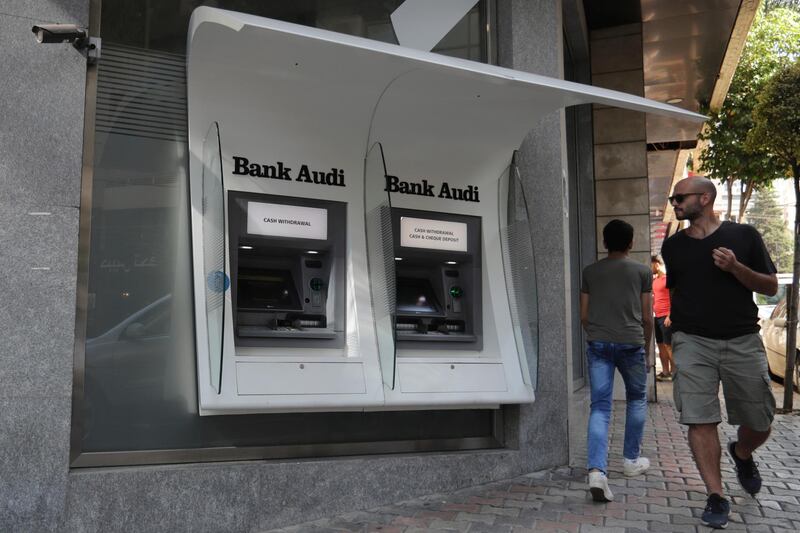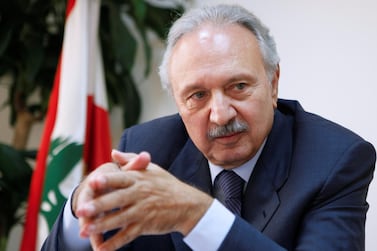Lebanon's bank staff union announced on Monday that it is ending a week-long strike after increased security and new regulations that make limits on withdrawal and dollar transfers official.
The union said Monday banks will reopen the following day.
Banks have been at the centre of anti-government protests, as demonstrators accused them of corruption and mismanagement. They had closed with the eruption of protests on October 17, opening only for a week. Depositers then rushed in to withdraw money, but banks had begun imposing informal capital controls that angered many clients and added to the turmoil, prompting the employees' strike.
The banks had been closed since November 12 because of a strike that the bank employees' federation said was over security concerns by staff facing intimidation from clients demanding their money.
On Saturday, security forces said they will boost security around banks. A day later, the Banks Association declared formal controls, limiting withdrawals to $1,000 per week, and transfers abroad to "urgent matters."
On Monday, Parliament Speaker Nabih Berri was quoted as saying that Lebanon is like a sinking ship that will go under unless action is taken, referring to the country's deep economic and political crisis.
Mr Berri, an ally of the powerful Shi'ite group Hezbollah, told visitors that efforts to form a new government were "completely frozen" and awaiting developments at any moment, the newspaper Al Joumhuria reported.
Struggling with a massive public debt and economic stagnation, Lebanon has sunk into major political trouble since protests erupted against its ruling elite a month ago, leading Prime Minister Saad Al Hariri to quit on October 29.
On Sunday, banks, which have mostly been closed since the protests began, announced temporary measures including a weekly cap of $1,000 on cash withdrawals and restricting transfers abroad to cover urgent personal spending only.
A bank staff union will decide later on Monday whether to lift a strike that has kept the banks shut for the past week.
Efforts to form a new government, needed to enact urgent reforms, hit a setback at the weekend when former finance minister Mohammad Safadi withdrew his candidacy for the post of prime minister, sparking bitter recriminations.
Hezbollah, a heavily armed group backed by Iran, said "political understandings" would take place between "the parties and even with leaders of the protest movement" to form a new government, without giving further details.
Hezbollah deputy leader Sheikh Naim Kassem, in an interview with Iranian media broadcast by the group's television station Al Manar, said the new government's agenda would help to calm down the streets.
Both Hezbollah and Mr Berri want Mr Hariri, who is aligned with Gulf Arab and Western states, to be prime minister again. Hezbollah is classified as a terrorist group by the United States.
Mr Berri said he still hoped Mr Hariri would agree to form the new cabinet, Al Joumhuria reported.
"The country is like a ship that is sinking little by little," the paper quoted him as saying. "If we don't take the necessary steps, it will sink entirely."
An-Nahar newspaper quoted Mr Berri as likening the situation of the Lebanese people to that of passengers on the Titanic, the passenger liner that sank in 1912 after hitting an iceberg.
Some protesters had rejected the potential nomination of Mr Safadi, a prominent businessman and former lawmaker from the predominantly Sunni city of Tripoli, saying he is part of a political elite they want ousted.
Lebanon's prime minister must be a Sunni Muslim, according to its sectarian power-sharing system.






